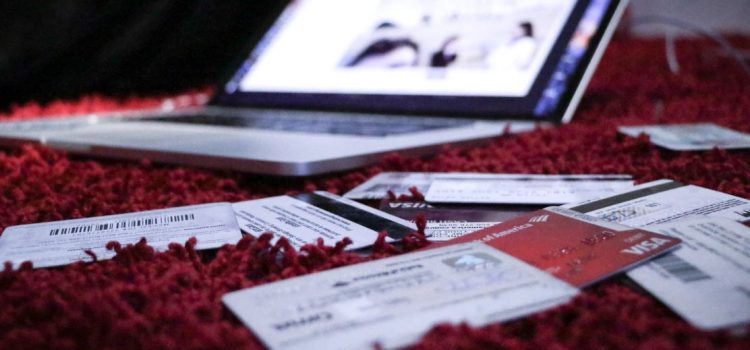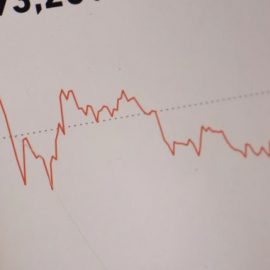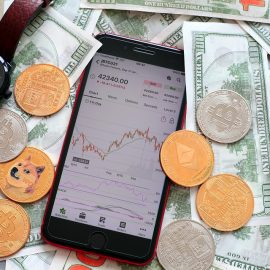
This is a free excerpt from one of Shortform’s Articles. We give you all the important information you need to know about current events and more.
Don't miss out on the whole story. Sign up for a free trial here .
What’s behind rising credit card debt in the US? What are its impacts? What can be done to address the crisis?
US Credit card debt has surged to over $1 trillion for the first time, signaling financial distress for many Americans. Persistently high inflation paired with rising interest rates are making credit card debt increasingly unmanageable and putting financially vulnerable Americans at greater risk.
Here’s what’s causing the national credit card debt crisis, and how you can avoid and pay off your debt.
US Credit Card Debt Is Exploding
In July, US credit card debt exploded to over $1 trillion for the first time ever, signaling financial peril for millions of Americans struggling to keep up with payments. As interest rates continue to climb, the mountain of debt threatens to bury consumers and undermine the US economy causing a national credit card debt crisis.
A Short History of Credit Card Debt
For decades, credit card debt has steadily risen in the US, falling sharply just twice in recent history—during the 2008 recession and the Covid-19 pandemic.
Today Americans are maxing out their cards again: In the second quarter of 2023, credit card debt increased by $45 billion, reaching a total of $1.03 trillion.
- 40% of adults in households earning less than $100,000 annually say their debt has increased, compared with 25% for households earning above that amount.
- 50% of Black and Hispanic adults say their household debt has risen, compared with 30% of white adults.
- Adults in their 20s and 30s are struggling to pay their monthly bills in full.
Experts attribute the rise in debt to:
- Strong consumer spending, including on nonessential items like travel and clothing.
- Rampant inflation, which has driven up prices for necessities like food, housing, and gas, forcing more Americans to rely on credit.
- Ongoing Federal Reserve interest rate hikes that have caused the average credit card Annual Percentage Rate (APR)—the extra money you have to pay when you borrow on a credit card—to approach 21%, making carrying balances more expensive.
Consequences of Soaring Credit Card Debt
Skyrocketing credit card debt and high APRs can have ripple effects on Americans’ financial lives and across the US economy, potentially leading to:
- More money being diverted to interest payments—leaving less for Americans to save or spend.
- Increased risk of missed payments and financial hardship. Higher interest costs make it harder for people to pay their credit card bills on time. This leads to penalties, damages credit, and reduces access to affordable credit.
- Increased bankruptcies. The weight of unmanageable credit card debt can force more consumers to declare bankruptcy, which can devastate people’s finances for years.
- Dampening of the economy. Consumers who devote larger portions of their income to debt payments are less able to spend on discretionary items—sending ripples across sectors and slowing GDP growth.
Steps for Paying off Debt
The book The Barefoot Investor recommends these steps to pay off your debts one by one:
- List your debts. List your debts from smallest to greatest.
- Renegotiate your interest rates. Tell your bank that you’re considering transferring your credit balance to another bank that won’t charge you fees for 18 months. Ask them to renegotiate your interest rate and waive your annual fee.
- Get rid of your credit cards.
- Pay off your debts one at a time, starting with the smallest. Pay off your smallest debt as quickly as possible, while making the minimum payments on your other debts.
- When you pay off a debt, celebrate. The author suggests burning your credit card bills with a lighter. Apply the money you were paying on the now paid-off debt toward paying off the next smallest debt on your list.
- Repeat until you’ve paid off all of your debts.

Want to fast-track your learning? With Shortform, you’ll gain insights you won't find anywhere else .
Here's what you’ll get when you sign up for Shortform :
- Complicated ideas explained in simple and concise ways
- Smart analysis that connects what you’re reading to other key concepts
- Writing with zero fluff because we know how important your time is






